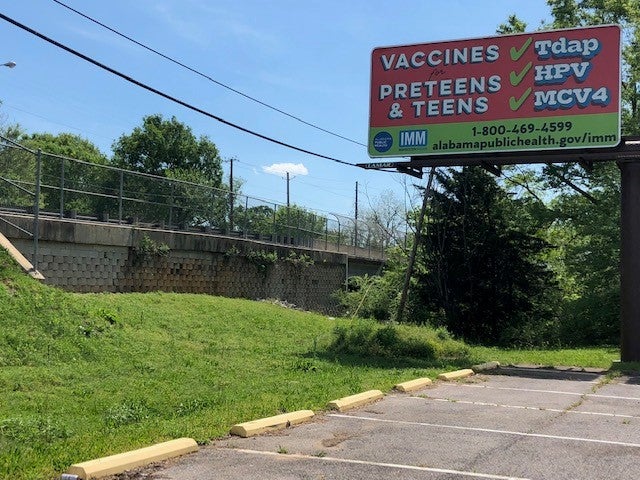How Sex Ed Can Save Lives

Expand A billboard by the Alabama Department of Public Health in Eutaw, Greene County, raises awareness of recommended adolescent vaccines, including the HPV vaccine. © 2019 Human Rights Watch When Abba M. learned that a sexual partner had exposed her to the human papillomavirus, commonly known as HPV, she did “a bunch of Googling.” The 21-year-old Alabama resident knew very little about it. A billboard by the Alabama Department of Public Health in Eutaw, Greene County, raises awareness of recommended adolescent vaccines, including the HPV vaccine. Turning to her friends proved unhelpful. Most, like Abba, had never learned about the virus in school. “HPV isn’t really a thing,” a friend told her. “You have it, but you don’t have it, so don’t worry about it.” To the contrary: HPV is something people, especially girls and women, ought to worry about. In fact, it’s the most common sexually transmitted infection in America, and it leads to around 35,000 cases of cancer annually. HPV is the leading cause of cervical cancer, which kills around 4,200 U.S. women each year. Mortality rates are higher for black women, poor women, and those who lack health insurance. Abba is just one of many Alabaman girls and women I’ve spoken with over the past year, in my role with the nonprofit group Human Rights Watch, who knew little or nothing about HPV and the vaccine that can lower their risk of cervical cancer. Previous research in 2017 and 2018 also showed that women in Alabama lack information on HPV and reproductive health, contributing to the state’s high cervical cancer mortality rates. Only 29 states and the District of Columbia mandate the teaching of sex education in schools. And while voluntary teaching of sex ed in Alabama is allowed, it must be abstinence-focused. By not providing students with comprehensive knowledge about their sexual health, many schools are omitting information that could save lives.
The HPV vaccine, first approved by the U.S. Food and Drug Administration in 2006, protects against most HPV infections that can lead to abnormal changes in cervical cells and eventually cancer. It is an effective cancer-prevention tool when administered before a person becomes sexually active.
The Centers for Disease Control and Prevention currently recommends that all adolescents ages 11 and 12, boys and girls alike, receive two doses of the vaccine, although it can be given to children as young as nine. It was originally approved only for those 26 or younger, but in 2018 the Food and Drug Administration approved the vaccine for adults up to the age of 45. But despite its life-saving potential, the vaccine is underutilized. HPV vaccine rates trail far behind those of other recommended adolescent vaccines, and approximately 50 percent of girls ages 13-17 have completed it. Vaccination rates are even lower for U.S. boys, though men experience HPV-related cancer rates nearly as high as women’s. In Alabama, HPV vaccination rates are much lower than national rates, and according to the Alabama Department of Public Health, around 20 percent of adolescents have completed the series. One factor contributing to low vaccination rates is the stigma that sexually transmitted infection still carries. Another culprit is medical providers’ failure to strongly recommend the vaccine and bring awareness to its important role in cancer prevention. And then there are our nation’s schools, which have a responsibility to protect students.
They should be educating students on how to prevent HPV and additional steps they can take to lower their risk of cancer. Yet many don’t. Young people deserve schools that will help them thrive. Students seeking to make sense of a deadly but preventable virus shouldn’t have to turn to Google or misinforme.
Read the full article at the original website
References:
- https://www.cdc.gov/std/hpv/stdfact-hpv.htm
- https://www.cdc.gov/cancer/hpv/statistics/cases.htm
- https://seer.cancer.gov/statfacts/html/cervix.html
- https://www.jhsph.edu/news/news-releases/2017/cervical-cancer-death-rates-higher-among-older-and-black-women.html
- https://www.cdc.gov/hpv/parents/vaccine.html
- https://www.hrw.org/report/2018/11/29/it-should-not-happen/alabamas-failure-prevent-cervical-cancer-death-black-belt
- https://www.al.com/news/2018/11/alabama-has-highest-rate-of-cervical-cancer-death-in-nation-says-report.html
- https://www.guttmacher.org/state-policy/explore/sex-and-hiv-education
- https://www.fda.gov/vaccines-blood-biologics/safety-availability-biologics/gardasil-vaccine-safety
- https://www.cdc.gov/hpv/hcp/schedules-recommendations.html
- https://www.fda.gov/news-events/press-announcements/fda-approves-expanded-use-gardasil-9-include-individuals-27-through-45-years-old
- https://www.aappublications.org/news/2019/08/22/teenvaccination082219
- https://www.statnews.com/2019/09/11/new-evidence-shows-why-the-hpv-vaccine-is-as-important-for-boys-as-girls/
- https://nam02.safelinks.protection.outlook.com/?url=https%3A%2F%2Fwww.al.com%2Fnews%2F2019%2F08%2Falabama-hpv-vaccination-rate-unchanged-in-13-years.html%3Futm_source%3DNewsletter%26utm_medium%3DNews%2520-%2520Reckon%2520Women%26utm_campaign%3Dreckon_women_08222019&data=02%7C01%7Cdaniela%40hrw.org%7C1960962911804da3f72e08d727220a6c%7C2eb79de4d8044273a6e64b3188855f66%7C1%7C1%7C637020899486549434&sdata=vh2OqQtsTj0rFZ1qpTpqERy%2FPgjezR8FLPvr%2FiR66dw%3D&reserved=0
